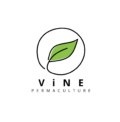In episode 72 of the Permaculture Vine Podcast, Cormac chats to Paul Lynch of Ansa Permaculture.
Brought to you by https://www.pdc2pro.com
For all our episodes go to: https://vinepermaculture.com/vinepodcast/ https://www.buymeacoffee.com/vinepermaculture
Paul Lynch
www.permaculturedesign.ie/
Paul has combined his interests in nature and design to offer a permaculture design, drone mapping, and orchard care service from his home in Ireland since 2016. With a formal educational and professional background in engineering and design, he brings these skills into his design service. His home also functions as a testing ground for various permaculture methods and ideas, including vegetable growing, rainwater harvesting, stream water abstraction and filtration, drone mapping, fruit tree grafting for nursery establishment, grafting to mature trees, plant propagation from cuttings, seed saving, hot composting, solar PV generation, pig & chicken tractor systems, natural building, forest garden guilds, and sheet mulching.
Paul has completed two Permaculture Design Certificates (PDCs), one in 2010 in Devon and the other in 2015 in Ireland. In 2019, he undertook a permaculture teacher training course (TPT), followed by a “Train the Trainer” course in 2021, which is a State-certified teaching qualification. He teaches in-person introduction to permaculture courses as well as specialist courses on design, orchard care, and hot composting, among other subjects. Paul is on the Certified Teachers Register of the UK Permaculture Association and is available to guest teach on PDCs both in Ireland and internationally. He appreciates the immersive experience and sense of community that can be fostered on a good PDC.
Paul’s other interests include boat building, swing dancing, juggling, and most importantly, table tennis. He is a fluent Irish speaker and also runs some courses in Irish. Having lived abroad for periods, Paul speaks French and Spanish well, with an intermediate level of German. He enjoys learning and using local languages wherever he travels.
In 2016, Paul founded a permaculture design service along with a small research and development site in County Cork, Ireland. There, he has applied a wide array of permaculture practices, including no-dig vegetable growing, rainwater harvesting, stream water abstraction and filtration, drone mapping, fruit tree grafting for nursery establishment, grafting to mature trees, plant propagation from cuttings, seed saving, hot composting, solar PV generation, pig & chicken tractor systems, natural building, forest garden guilds, and sheet mulching. His design service has flourished, providing consulting services for homes, gardens, schools, businesses, NGOs, and community groups.
Paul is particularly passionate about Keyline design, using it as the foundation for larger permaculture projects. He employs drone mapping to create maps with low-interval elevation contour lines, offering a quick overview and allowing him to begin Keyline design efficiently. He believes that diligent surveying leads to elegant design solutions, and he uses various permaculture analysis tools to create visual overlays of site characteristics before diving into the design process.
When designing, Paul seeks to blend the natural characteristics of a site with the needs of its inhabitants. He finds it fascinating that the most resource-rich sites are often the hardest to design, whereas more constrained sites tend to be easier. Since 2016, Paul has been developing his home, office, and garden as a permaculture research and development site, and during some summers, he provides a weekly veg box to a couple of his neighbors.
He also maintains a small fruit nursery where he grafts local and resistant varieties of fruit trees for his design clients and neighbors. Notable grafts include pear to rowan and medlar to hawthorn. Paul is particularly interested in propagating hardwood cuttings and uses willow water to enhance root development, a service he offers to design customers during winter, along with bare-root planting.
In 2016, Paul expanded his services to include orchard care, focusing primarily on winter and summer pruning, with occasional grafting. Over the years, he has developed a deep connection with apple trees, treating them holistically. His approach to orchard care is strongly influenced by the teachings of Fukuoka, who has long inspired him.
Paul has also developed a mass seedballing system and launched a project to direct seed-ball a native woodland shelterbelt on an overgrown verge at a client’s site. He believes this is the first project of its kind in Ireland.
Paul’s home and office are fully off-grid, powered by solar PV for all his electricity needs. He is passionate about integrating mob-grazing of poultry with gardening for mutual benefits and has designed and supplied mobile poultry systems to his customers. As a designer with a deep love for functional and beautiful architecture, he consults A Pattern Language in all his designs, applying its patterns to build lean-tos, sheds, and other structures. Paul also enjoys working with hazel and willow, using weaving techniques he learned in traditional Irish basketry and curach building to create living woven terraces and other structures.
His strong interest in renewable energy led him to design and install his home’s solar PV system. He also uses hot compost for seasonal water heating and has built a functional rocket-stove bath. Earlier in his career, Paul co-authored The Mayo Energy Audit 2009-2020, a study of energy use and renewable resources in County Mayo, Ireland, forecasting future scenarios in an energy-scarce world. His experience includes grassroots environmental activism, particularly with the Shell to Sea campaign, where he honed his facilitation and organizing skills.
Paul’s additional interests include boat building, swimming, and various sports. His formal qualifications include a B.Eng. in Mechanical Engineering (specializing in materials and design, 2004), two Permaculture Design Certificates, a City and Guilds Chainsaw course (2016), a Permaculture Teacher Training course (2019), and a “Train the Trainer” certification (2021), along with various courses in natural building, orchard care, grafting, renewable energy, and growing.


